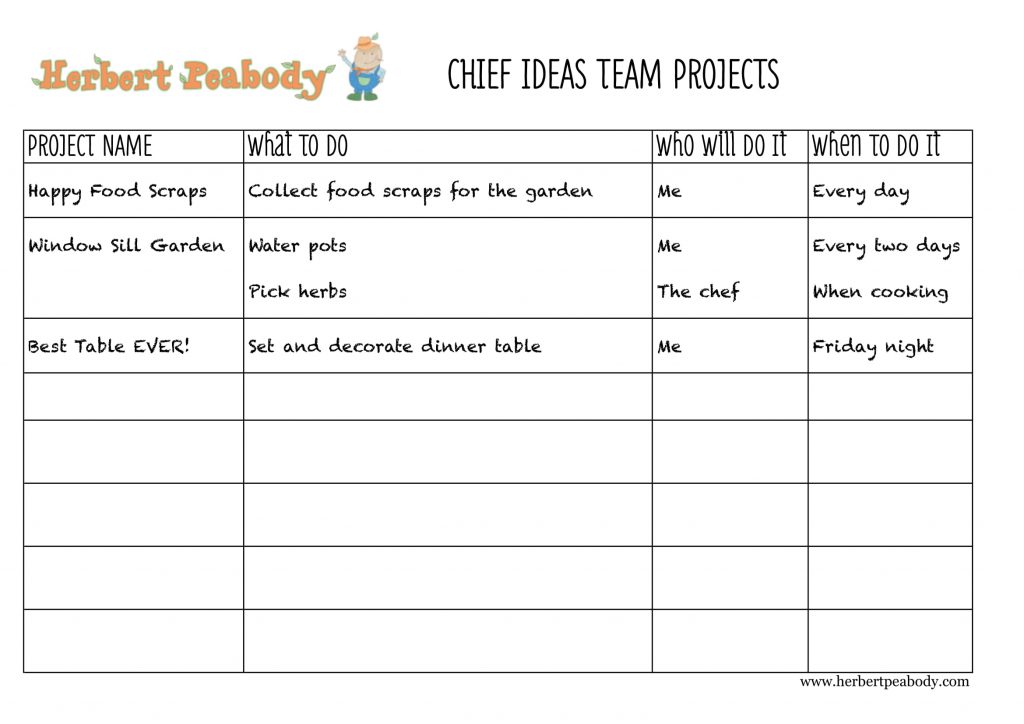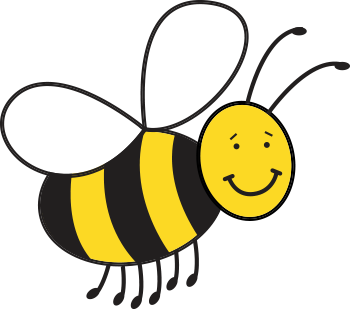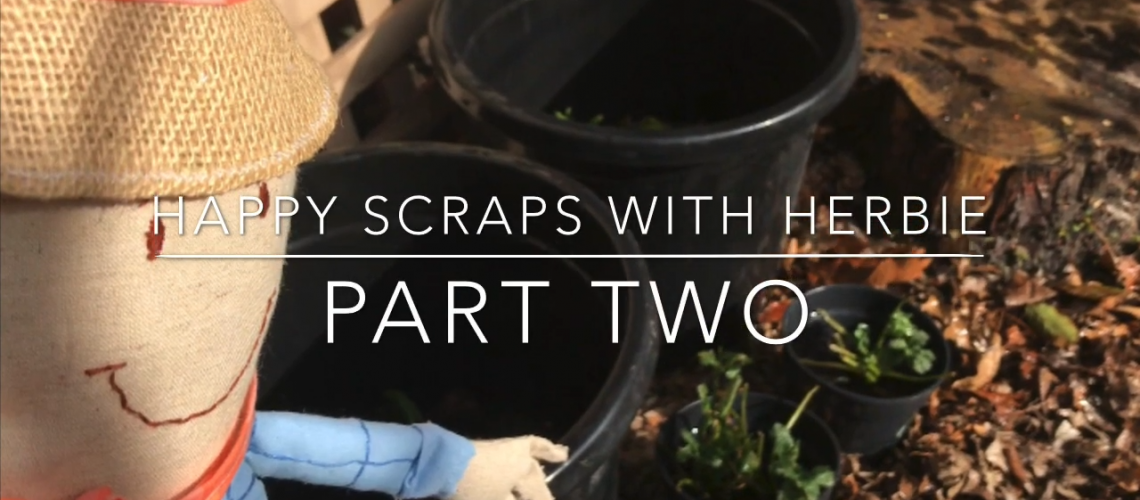If there’s one thing we can start today to be more sustainable, it’s reducing food waste. And it is super easy!
If you’re cooking broccoli and cauliflower, you can peel and chop the stems and eat them.
If you’re chopping bunches of spring onion, herbs or spinach, leave 2cm on top of the roots and plant the cuttings in a pot of good soil, and they will grow themselves!
Food scraps can go into a compost heap or worm farm, and the beautiful soil you produce will make a nourishing treat for your garden.
Nature wants to regenerate, and all we need to do is assist – Nature does the rest.
And when the food eXchange told Herbie they were talking about food waste, he thought it would be fun to share a story all about how you can help. And, here it is!
It was the school holidays and Herbert Peabody’s niece, Clementine, and nephew, Digby, had come to visit MulberryTree Farm. All three of them had been busy in the vegetable patch picking carrots and spinach, and they were now in the kitchen, preparing dinner. They’d decided to make vegetable curry!
Clementine sliced the onion carefully. “How does this look, Uncle Herbie?”
“Excellent! How are you going, Digby?”
“Good, thanks. This is fun!” said Digby as he squished garlic and ginger with a mortar and pestle. “And it smells very interesting. I’ve never made curry before.”
“It’s fun learning new things,” said Clementine. “And we’ve been learning at school that when you make meals yourself, there’s not as much packaging to throw away.”
“That’s true,” said Herbie.
“We’re doing a project at school about waste,” said Digby. “We are on a mission to reduce the amount of waste we produce. I am the part of the chief ideas team to come up with ways to do it.”
“That sounds interesting!” said Herbie.
“Yes, it’s super cool. Every day after lunch, we have to think of ways to use the waste we have left over.”
“Wow!”
“We put left over food into the school compost, and any packaging we have from our lunch, we have to repurpose.”
“What ideas have you come up with?” asked Herbie.
“We made pencil holders for our desks out of yogurt tubs.”
“That’s pretty cool,” said Clementine.
“It’s a great idea,” agreed Herbie. He took the spinach and cut off the roots, and then placed the spinach into a big saucepan.
Digby watched feeling very confused. The spinach still had some veggie patch soil on it, and he didn’t think crunching dirt in his curry would be very tasty.
“Um, Uncle Herbie, don’t we need to wash the spinach first?”
“We do,” smiled Herbie, “and we’re going to wash it in this saucepan. The dirt will go to the bottom as it rinses off the leaves, and then we can take the left over water and tip it onto the kitchen herb garden.”
“Wow! Saving water AND dirt for the garden is awesome recycling! I’ll remember this for the chief ideas team!” said Digby
“Hmmm, and can I ask, Uncle Herbie,” said Clementine looking at the ends of the spinach covered in dirt, “are we going to put these into the curry?”
“A ha! These won’t go into the curry! But what we will do is replant them.”
“But the tops are chopped off.”
“They are, but it’s the roots that plants grow from, and these roots will regrow into more spinach.”
“Wow!” said Digby, “that’s another great idea for the chief ideas team!”
“Do we have to plant them right now?” asked Clementine.
“We can put the roots in a bowl of water and plant them tomorrow,” said Herbie.
“Good,” said Digby, “although I am super excited to plant and regrow the spinach, I am getting hungry!”
“I am too,” said Clementine, “but I think I have an idea for your chief ideas team.”
“How can you think? My tummy is rumbling!” said Digby.
“Haha!” said Herbie. “Tell us your idea, Clementine.”
“Well, lots of lunch food comes in packaging and containers.”
“Yes … “ said Digby.
“So, what if everyone at school collected their containers for one week, and then each class made them into small pot plants to grow food in?”
“Wow! That’s cool!” said Digby.
“It’s awesome!” agreed Herbie.
“And then,” said Clementine, “we could start growing seeds in the containers, and then plant the seedlings in our school veggie patch!”
“The chief ideas team will love this!” said Digby.
Clementine and Digby took the saucepan out to tip onto the kitchen herb garden and they picked some coriander for the curry. Herbie made some naan bread, and soon the curry was ready.
“This is a super yummy meal!” said Clementine.
“A team effort,” said Herbie.
“There’s one problem though,” said Digby.
“What’s that?”
“There won’t be anything for the compost heap … because it will all be in my tummy!”
So, perhaps you would like to start a chief ideas team at your school, or at home over the school holidays.

You could make a chart to record your ideas, and put it in a handy place where everyone can contribute.
You can write down a plan for what you will need to action your ideas, and you can assign roles to different people so everyone can play a part.
Herbert Peabody would love to hear your ideas for reducing waste. Let us know what you come up with!
Herbert Peabody appeared every second Thursday on Seymour FM 103.9on through 2020 with the food eXchange. Discover the incredible things the food exchange does right here https://www.exchangefood.org/



